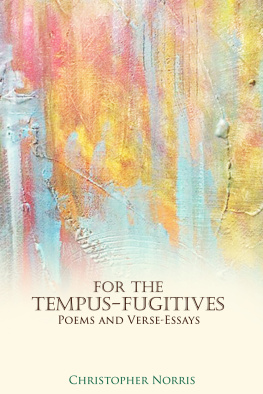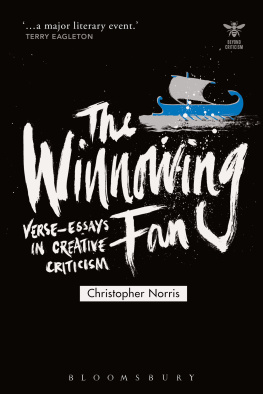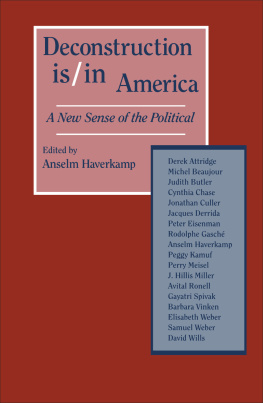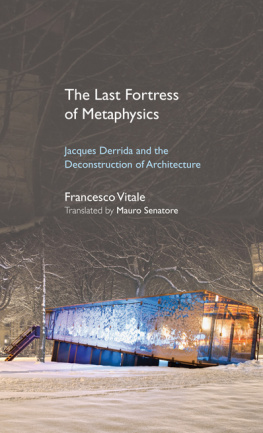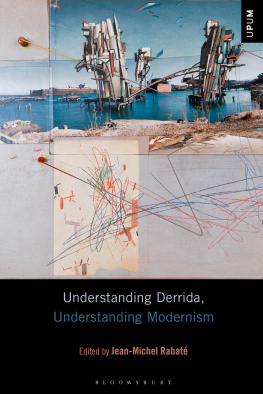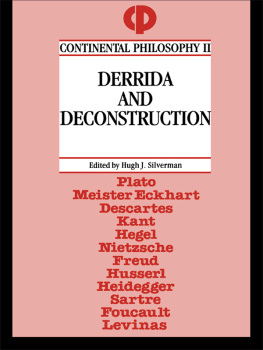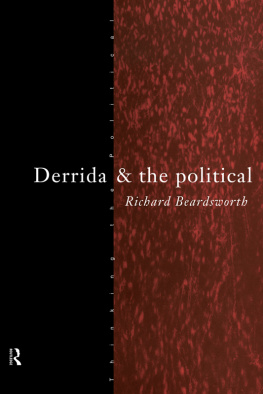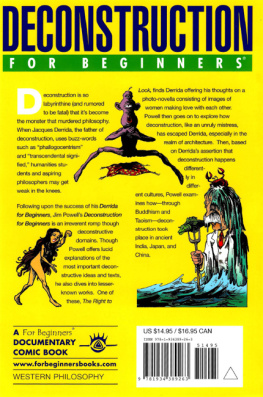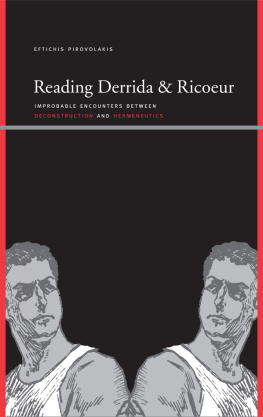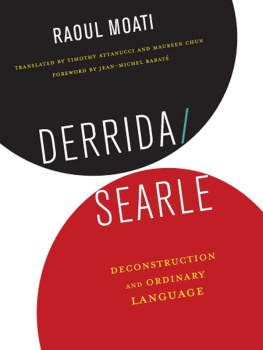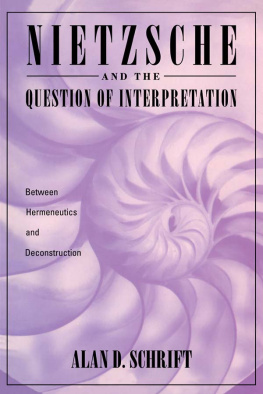Academic game? Dangerous weapon? The most important development in twentieth-century literary studies? Setting out to shake not only literary critical assumptions but the very foundations of Western thought, deconstruction remains one of the most controversial yet crucial strands of contemporary critical theory.
Inherent in the very idea of deconstruction, however, is the need to revisit, rethink, reassess. In this third, revised edition, Norris builds upon his 1991 Afterword to add an entirely new Postcript, discussing the central topics and development in recent critical debate. The Postscript includes an extensive list of recommended reading, complementing what was already one of the most useful bibliographies available. More than ever in this new edition, Deconstruction is the book to revolutionize your thinking.
IN THE SAME SERIES
Alternative Shakespeares ed. John Drakakis
Alternative Shakespeares: Volume 2 ed. Terence Hawkes
Critical Practice Catherine Belsey
Deconstruction: Theory and Practice Christopher Norris
Dialogue and Difference: English for the Nineties ed. Peter Brooker and Peter Humm
The Empire Writes Back: Theory and Practice in Post-Colonial Literature Bill Ashcroft, Gareth Griffiths and Helen Tiffin
Fantasy: The Literature of Subversion Rosemary Jackson
Dialogism: Bakhtin and his World Michael Holquist
Formalism and Marxism Tony Bennett
Making a Difference: Feminist Literary Criticism ed. Gayle Green and Copplia Kahn
Metafiction: The Theory and Practice of Self-Conscious Fiction Patricia Waugh
Narrative Fiction: Contemporary Poetics Shlomith Rimmon-Kenan
Orality and Literacy: The Technologizing of the Word Walter J. Ong
The Politics of Postmodernism Linda Hutcheon
Post-Colonial Shakespeares ed. Ania Loomba and Martin Orkin
Reading Television John Fiske and John Hartley
The Semiotics of Theatre and Drama Keir Elam
Sexual/Textual Politics: Feminist Literary Theory Toril Moi
Structuralism and Semiotics Terence Hawkes
Studying British Cultures: An Introduction ed. Susan Bassnett
Subculture: The Meaning of Style Dick Hebdige
Telling Stories: A Theoretical Analysis of Narrative Fiction Steven Cohan and Linda M. Shires
Translation Studies Susan Bassnett
Deconstruction
Theory and Practice
Christopher Norris
3rd edition
First published in 1982 by Methuen & Co. Ltd
Reprinted in 1986 with a revised bibliography
Revised edition first published in 1991
by Routledge
11 New Fetter Lane, London EC4P 4EE
Simultaneously published in the USA and Canada
by Routledge
29 West 35th Street, New York, NY 10001
Reprinted 1991, 1993, 1996, 1998, 2000
This edition first published 2002
Routledge is an imprint of the Taylor & Francis Group
This edition published in the Taylor & Francis e-Library, 2004.
1982, 1986, 1991, 2002 Christopher Norris
All rights reserved. No part of this book may be reprinted or reproduced or utilised in any form or by any electronic, mechanical, or other means, now known or hereafter invented, including photocopying and recording, or in any information storage or retrieval system, without permission in writing from the publishers.
British Library Cataloguing in Publication Data
A catalogue record for this book is available from the British Library
Library of Congress Cataloging in Publication Data
A catalog record for this book has been requested
ISBN 0-203-42676-2 Master e-book ISBN
ISBN 0-203-44064-1 (Adobe eReader Format)
ISBN 0-415-28009-5 (Hbk)
ISBN 0-415-28010-9 (Pbk)
GENERAL EDITORS PREFACE
No doubt a third General Editors Preface to New Accents seems hard to justify. What is there left to say? Twenty-five years ago, the series began with a very clear purpose. Its major concern was the newly perplexed world of academic literary studies, where hectic monsters called Theory, Linguistics and Politics ranged. In particular, it aimed itself at those undergraduates or beginning postgraduate students who were either learning to come to terms with the new developments or were being sternly warned against them.
New Accents deliberately took sides. Thus the first Preface spoke darkly, in 1977, of a time of rapid and radical social change, of the erosion of the assumptions and presuppositions central to the study of literature. Modes and categories inherited from the past it announced, no longer seem to fit the reality experienced by a new generation. The aim of each volume would be to encourage rather than resist the process of change by combining nuts-and-bolts exposition of new ideas with clear and detailed explanation of related conceptual developments. If mystification (or downright demonisation) was the enemy, lucidity (with a nod to the compromises inevitably at stake there) became a friend. If a distinctive discourse of the future beckoned, we wanted at least to be able to understand it.
With the apocalypse duly noted, the second Preface proceeded piously to fret over the nature of whatever rough beast might stagger portentously from the rubble. How can we recognise or deal with the new?, it complained, reporting nevertheless the dismaying advance of a host of barely respectable activities for which we have no reassuring names and promising a programme of wary surveillance at the boundaries of the precedented and at the limit of the thinkable. Its conclusion, the unthinkable, after all, is that which covertly shapes our thoughts may rank as a truism. But in so far as it offered some sort of useable purchase on a world of crumbling certainties, it is not to be blushed for.
In the circumstances, any subsequent, and surely final, effort can only modestly look back, marvelling that the series is still here, and not unreasonably congratulating itself on having provided an initial outlet for what turned, over the years, into some of the distinctive voices and topics in literary studies. But the volumes now re-presented have more than a mere historical interest. As their authors indicate, the issues they raised are still potent, the arguments with which they engaged are still disturbing. In short, we werent wrong. Academic study did change rapidly and radically to match, even to help to generate, wide reaching social changes. A new set of discourses was developed to negotiate those upheavals. Nor has the process ceased. In our deliquescent world, what was unthinkable inside and outside the academy all those years ago now seems regularly to come to pass.

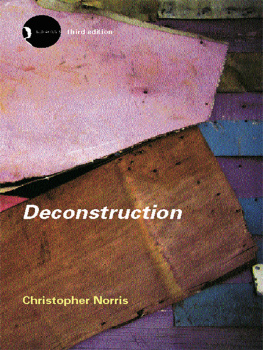

![Norris - Clybourne Park: [a play]](/uploads/posts/book/223649/thumbs/norris-clybourne-park-a-play.jpg)
